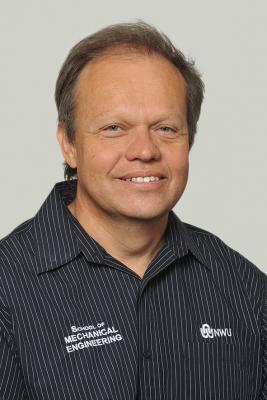
The story of NWU Aircraft Development begins with the remarkable journey of Prof Attie Jonker, a visionary whose passion for aviation was inspired by his upbringing in the small town of Bloemhof, South Africa. This journey led to the birth of Jonker Sailplanes, a world leader in glider design and production.
Prof Attie’s early exposure to aviation, driven by his father’s innovative spirit, laid the foundation for his dream to create the best glider in the world. This dream, nurtured during his engineering studies at NWU, became a reality through relentless innovation and collaboration.

Model Evolution and Milestones
From the JS1 prototype to the cutting-edge JS5, Jonker Sailplanes has redefined glider engineering through innovation, precision, and collaboration with NWU. Here are key models and their evolution:
- JS1 Revelation (1998–2010): A revolutionary design that stunned the aviation community and became a top competitor in international competitions.
- JS1C (2011–2015): Enhanced performance and technological upgrades for world-class competition.
- JS3 Rapture (2014–2018): A masterpiece in glider engineering with over 250 units sold and multiple World Championship victories.
- JS2 Revenant (2018–2022): Designed for higher performance and versatility.
- JS5 (2019–2024): Incorporates electric propulsion, aligning with green aviation trends.

Pioneering Electric-Powered Gliders
Jonker Sailplanes leads the charge in sustainable aviation, developing electric-powered gliders that meet Europe’s demand for environmentally friendly flight solutions. These models leverage cutting-edge battery technology and advanced aerodynamics to set new performance and sustainability benchmarks.
This innovation is driven by collaboration with NWU, where students actively contribute to research and design through practical, high-impact projects, ensuring a constant pipeline of talent and ideas.
Impact & Outcomes
The impact of Jonker Sailplanes extends across economic, educational, and global spheres:
| Type | Details |
|---|---|
| Economic | Employs 150 people, with 30 in R&D and 120 in production. Exports all gliders, insulating the company from local economic fluctuations and contributing to foreign revenue. |
| Educational | Recruits top-performing NWU graduates annually, strengthening NWU’s reputation for applied engineering research. |
| Global | JS3 gliders dominate international competitions, and electric-powered gliders lead the shift to sustainable aviation. |
Expansion & Partnerships
Jonker Sailplanes has a 10-year R&D plan, focusing on:
- JS4 Development: Set to debut in 2024 with improved performance and efficiency.
- Two-Seater Training Gliders: Affordable and advanced solutions for pilot training.
- Diverse Product Line: Expanding into new classes of gliders for broader market reach.
- Facilities Expansion: New manufacturing facilities in Potchefstroom to meet global demand.
- NWU Solar Car Project Collaboration: Leveraging glider engineering expertise to support solar car development, showcasing cross-disciplinary innovation.
.jpg)
Aligning with the SDGs
The Sailplanes Impact Initiative directly supports several Sustainable Development Goals:
- SDG 4 – Quality Education: Offering high-impact research opportunities for NWU students.
- SDG 8 – Decent Work and Economic Growth: Creating skilled jobs and boosting South Africa’s economy through global competitiveness.
- SDG 9 – Industry, Innovation and Infrastructure: Advancing aerospace engineering and manufacturing.
- SDG 13 – Climate Action: Promoting green aviation technologies and reducing carbon emissions.
This initiative demonstrates how South African engineering excellence can actively shape a sustainable and innovative global future.

